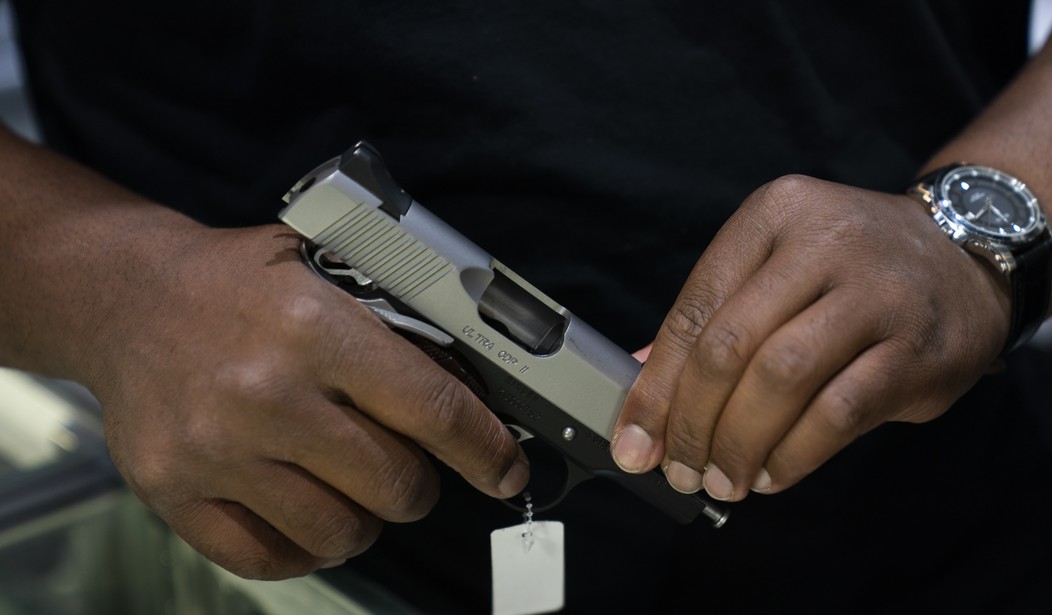On Wednesday, a federal judge in West Virginia ruled that part of a federal law that prohibits the possession of a firearm with an "altered, obliterated, or removed" serial number is unconstitutional.
U.S. District Judge Joseph Goodwin ruled that the law was not consistent with the United States' "historical tradition of firearm regulation," according to Reuters.
"I can find no authority for the idea that a firearm without a serial number would meet the historical definition of a dangerous or unusual firearm. In fact, as the Government points out, the commercial requirement that a serial number be placed on a firearm 'does not impair the use or functioning of a weapon in any way,'" Goodwin wrote in the ruling.
In the ruling, Goodwin pointed to a Supreme Court case from this year where the justices struck down a New York law regulating who could carry a concealed firearm in public. The law also required concealed carry applicants to show "proper cause" for wanting to carry a firearm.
Justice Clarence Thomas wrote the majority opinion in the case, New York State Rifle & Pistol Assn., Inc. v. Bruen, pointing out that the right to bear arms should not be subject to a different set of rules apart from the other rights detailed in the Bill of Rights.
The constitutional right to bear arms in public for self defense is not “a second-class right, subject to an entirely different body of rules than the other Bill of Rights guarantees.” We know of no other constitutional right that an individual may exercise only after demonstrating to government officers some special need. That is not how the First Amendment works when it comes to unpopular speech or the free exercise of religion. It is not how the Sixth Amendment works when it comes to a defendant’s right to confront the witnesses against him. And it is not how the Second Amendment works when it comes to public carry for self defense. New York’s proper-cause requirement violates the Fourteenth Amendment in that it prevents law-abiding citizens with ordinary self-defense needs from exercising their right to keep and bear arms. We therefore reverse the judgment of the Court of Appeals and remand the case for further proceedings consistent with this opinion.
Recommended
Since then, a federal judge in Syracuse struck down key parts of a New York gun law that took effect in the wake of the Supreme Court's ruling. The law restricted who could carry a handgun in public, where handguns could be carried and where firearms could be purchased.
The Supreme Court has also vacated a Massachusetts gun law that imposed a lifetime ban on purchasing handguns for anyone convicted of nonviolent misdemeanors involving the possession of guns. The law included the need for a license to purchase or possess a pistol.
























Join the conversation as a VIP Member